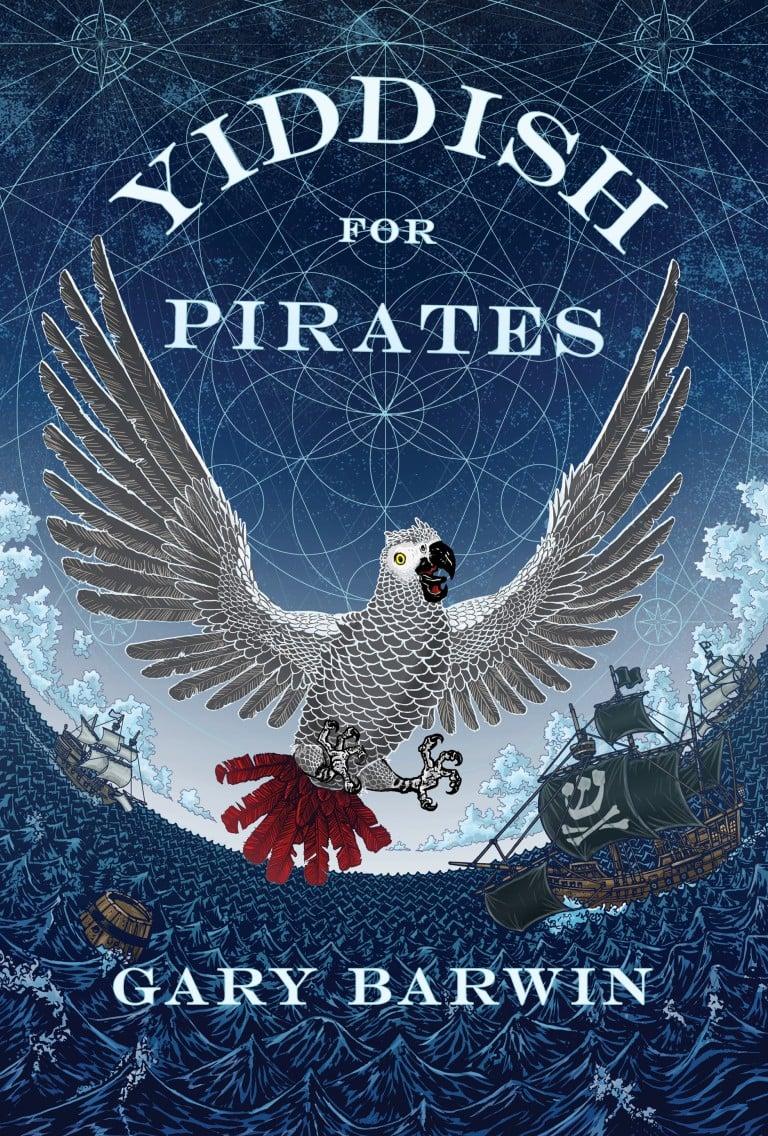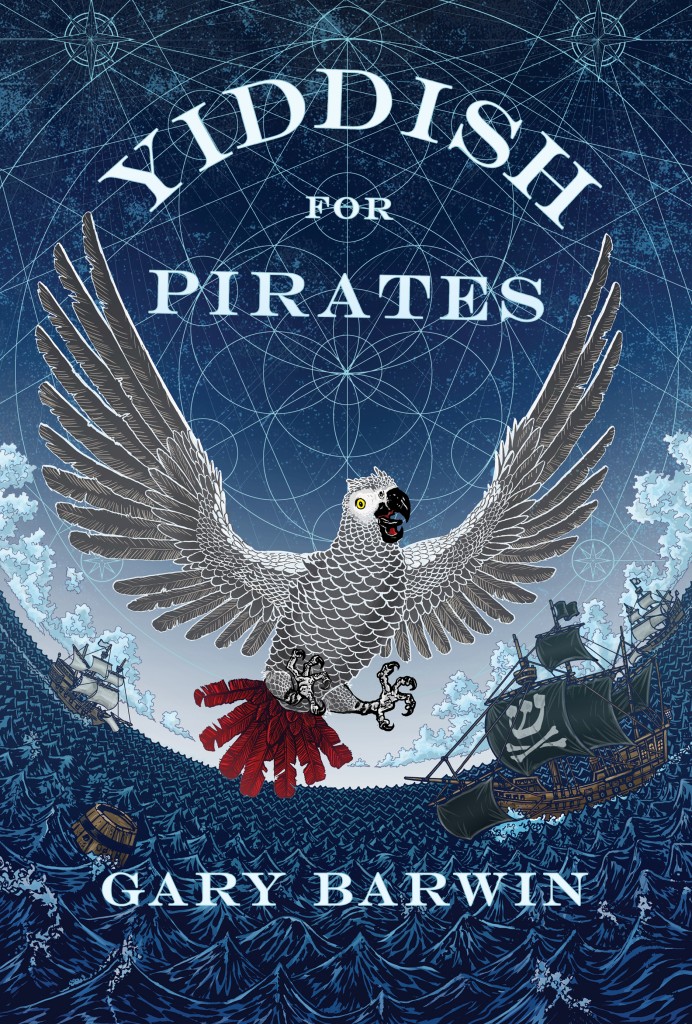Excerpt: Gary Barwin on the meaning of ‘shalom’
‘But what does peace look like?’ Read an exclusive excerpt of Gary Barwin’s Giller Prize-nominated ‘Yiddish for Pirates’

Share

Gary Barwin has been nominated for the 2016 Scotiabank Giller Prize for Yiddish for Pirates—the story of wannabe seafarer Moishe, and the 500-year-old multilingual African grey parrot who sits on his shoulder who records his master’s life in Yiddish. An exclusive excerpt from the book follows. You can also read, as part of our ongoing series profiling all the shortlisted authors’ creative process, Barwin’s essay on his craft here.
Hello. Howaya? Feh. You think those are the only words I know? Boychik, you don’t know from knowing. You ain’t seen knowing. I may bemeshugeh crazy, but I know from words. You think I’m a fool shmegegge? I’m all words.
Hello? If you want the story of a life, don’t wait for your alter kaker old gramps over there to wake up. Maybe he’ll never wake. But me? Listen to my words. They tell some story. Because I remember. Sometimes too much, but I remember.
So, nu, bench your fat little oysgepasheter Cape Horn tuches down on that chair and listen to my beaking. Come all ye brave lads, and so forth. I’ll tell you the whole megillah story from fore to aft.
What’s it about? Pirates. Parrots. Jews. Jewels. The Inquisition. Gefilte fish. Gold. A girl.
Boychik, I was a pirate’s parrot, and had I not noshed from the Fountain of Eternal Youth hundreds of years ago, I would rest beside my scurvy captain and Davy Jones hisself at the bottom of the sea where the soulless creatures crawl. And there where would you be?
Without a story.
That life. It was a book made into a life. A wonder tale. The glinty waves. The deep jungle. A world I wouldn’t have believed if I hadn’t sailed right into it. And for a time, that world had but one shoulder, blue and fussy with epaulettes hanging off the rigging of a stolen frock coat, a cutlass of a collarbone covered in flesh like mangy beef jerky.
My captain’s shoulder.
Feh, these days no one wants to hear. Maybe not even you. Thye treat us like leftovers—wizened chicken-gizzard pupiklech in this birdhouse of leftover Yids. But nu, it’s true, most of us look like yesterday’s chicken or its gizzards. Though look at these feathers. A young bird would be proud of such grey.
The Shalom Home for the Aged.
Shalom? In Hebrew, “shalom” means hello, goodbye, peace. Imagine the crazy farkakteh waving of some poultry-skinned geezer on the fifth floor, squinting out from between the orange curtains. Is he waving hello or goodbye? Ptuh! It’s an old age home, so who knows? Maybe the shlemiel thinks he’s in a crow’s nest and is warning of an invading armada. Alav ha’shalom. Peace be upon him, old nudnik.
But what does peace look like? Is it better to be careened tsitskehs-over-tuches, nipples-over-nethers in dry dock, the dangling clams of your ballsack scraped daily for barnacles by some balmelocheh know-it-all nurse, or lost somewhere on the seventh of the seven seas snorting the scent of new flowers and the soft jellyfish pazookheh breasts of beautiful sheyneh maidens?
Too often, stories in this library of lost people are told in the farmisht confused language of forgetting, but I speak many languages and I’m fluent in both remembering and forgetting. Though, nu, it’s easier to tell the stories you remember.
Or pretend to. And what you don’t remember, the stories tell for you.
Ach. I talk too much. I’ve got myself twisted fardreyt with words turncoating again, thinking about my bastard mamzer captain himself. But what do you expect? Five hundred years old, I’m an alter kaker geezer of the highest degree, with a brain like a cabbage roll. A parrot brain like a chameleon on Jewish tartan.
The horizon, I once told a Spanish painter, it gives you a whole new perspective. It doesn’t exist except from far away. The horizon is always a story, and as soon as we get there, it’s somewhere else.
The horizon, it’s a line we crossed just to see what we could see. And believe me, we saw many things, some things that wouldn’t just stay over the horizon.
They wanted our souls for eternal barbecue so we travelled with Columbus into that braves’ new world as if across a vast and chilly Jordan. An undividing Red Sea. And what did the ancients find? A promising land. Thousands of years of history. Regret. Happiness. The future.
And what did we find? Ach, this is a pirate tale I’m telling you, so it has to be treasure. So, nu, you ask, what is this treasure and where is it buried?
This I’ll try to answer. As well as another, the big question of all stories: And then what happened?
Yes, it brings mazel for a pimply boy like you to hear about blood, kishkas – guts – dangerous books, and shtupping. It puts some hair between your ears and above your skinny-dick shmeckel.
You’ll like it.
So, nu, in the beginning what was there?
A beginning.
Excerpted from Yiddish for Pirates. Copyright © 2016 Gary Barwin. Excerpted by permission of Random House Canada, a division of Penguin Random House of Canada Limited. All rights reserved. No part of this excerpt may be reproduced or reprinted without permission in writing from the publisher.